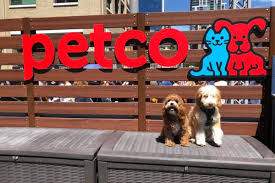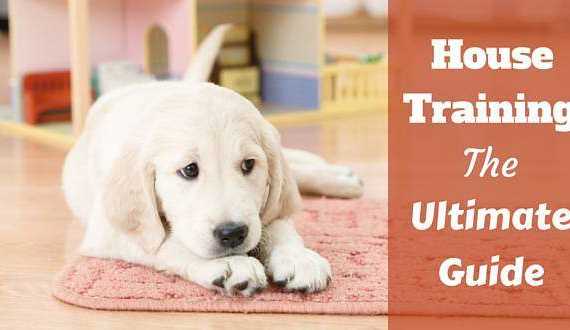Updated: March 10th, 2023
This article contains affiliate links. Read the full disclosure here.
Find the Right Dog for Me: Your Guide to Adopting a Golden Retriever
New to owning a dog? Start here!
Whether your new pet is a full-grown rescue or a new puppy, it’s important to prepare in advance. Even though golden retrievers are generally confident, friendly dogs with lots of love to share with everyone they meet, they can be a bit overwhelmed when moving to a new home. Having a plan in place and knowing what to expect will help you set the stage for success.
Which golden retriever is right for me?
Choosing a new dog is exciting – and it can be a little bit nerve-wracking, too. The first – and most important – consideration is to make sure that you choose a dog that fits your lifestyle and your personality. Older dogs are great if you’re laid-back and simply need companionship and light activity. On the other hand, puppies are fantastic if you’re a fan of outdoor adventures and you’re looking for an energetic friend to accompany you.
If you haven’t already decided on a specific dog, here are a few tips to help make your decision simpler.
Adult dogs can be a great fit for first-time pet parents.
There are lots of golden retrievers for adoption, and many already know the basics. Most know the difference between your belongings and their toys, which can mean far less frustration. Most are already spayed or neutered, and most are up to date on their vaccines.
In addition, there are a couple of other things that might move you toward choosing an adult dog over a puppy:
- Older dogs are usually housebroken, and won’t normally require as much training. This isn’t always true but in many cases, an adult can be an “easier” first dog than a puppy.
- Puppies generally demand more time than older dogs do. If you’re at work for most of the day and your new pet will be left alone for hours, it’s probably best to rescue a golden retriever that’s already full-grown. Puppies require lots of time and attention.
Puppies typically need more than adult dogs – especially at first.
Golden retriever puppies are friendly by nature. Still, they need to be properly socialized, and this means changes to your own social schedule. In addition, your pup will need vaccines, plus they’ll have to be spayed or neutered.
Here are some additional considerations to keep in mind:
- Puppies are normally blank slates, with no unwanted habits. They typically take lots more attention and training than adult dogs do, but training gives you the opportunity to bond and with the help of a trainer, books, and videos, is fairly simple.
- You’ll probably need more patience to deal with a puppy than you will with an adult dog. All pups make mistakes as they learn what’s expected, particularly during the beginning, and tiny bladders mean frequent urination and a higher rate of “accidents.” Use positive puppy training techniques, be sure to crate-train your pet for their safety and your sanity, and never, ever hit your pup.
- If you have your heart set on a puppy and you can’t be with them for at least most of the day, someone will need to be there for them. This means that you’ll need to plan for a pet sitter in advance and for everyone’s sake, thoroughly vet your candidates if you don’t know them already.
We aren’t trying to discourage you from choosing a puppy over a full-grown golden. At the same time, taking care of a pup is a lot like caring for an active toddler. They’re always into something, they put everything in their mouths, and they need lots of trips to the restroom! Know what you’ll need to do to care for your puppy before you bring them home and you’ll be ahead of the game.
What will my dog need?
Once you find a new four-legged friend, you’ll need to set them up comfortably and make sure that all their needs are met. Besides a new leash, a collar, and perhaps a harness to make walks more comfortable for both of you, there are a few more things to shop for.
A place to call their own:
As denning animals, dogs feel safest when they have a place to retreat, rest, and have a little time to themselves. Unless you are adopting an older dog that has suffered emotional trauma caused by inappropriate crating, your dog will appreciate having a crate of their own.
Puppies need an all-wire crate that can’t be chewed, while adult dogs (and you!) might appreciate a furniture-style crate that complements your home’s décor. Be sure to learn about the benefits of crate training before you bring your dog home, and read our step-by-step guide to crate training so you’ll know exactly how to set your new friend up for success.
A comfortable bed:
Or should we say – a few comfortable beds! Dogs love to lounge wherever we are. Get your dog at least one bed. Choose one with a washable cover so you can keep it smelling fresh, and make sure that it has plenty of padding.
Golden retrievers need to rest comfortably, particularly as they age – and even more so if they have musculoskeletal issues that tend to be common in large breeds. A supportive dog bed lasts longer than a cheaply-made one, and will go a long way toward helping your pet live their best life.
Nutritious food & tempting treats:
Whatever your dog’s age, it’s important to offer healthy food that’s right for their life stage.We recommend you to check Ollie Food. Look for a brand with human-grade ingredients and no fillers – there are quite a few options including brands that can be conveniently delivered to your home.
You’ll need to start out with whatever food the dog has been eating, and gradually swap them over to the brand you prefer. Most rescues and responsible golden retriever breeders will make a point of telling new owners which food the dog eats and what kind of eating schedule they’re on.
Treats are essential for training and natural chews help keep your dog entertained while satisfying the instinctual need to gnaw
Dishes for food and water:
Dishwasher-safe bowls are essential and a quality set will last your pet a lifetime. Avoid anything plastic since these can harbor bacteria. Stainless steel or heavy-duty ceramic options are best.
Toys:
Your dog will need lots of toys. Having plenty of options reduces the risk of destructive behavior caused by boredom, plus it gives you more opportunities to play together. If you’re adopting an adult dog, consider asking whether there are certain types of toys that your new pet prefers. Most golden retrievers love balls, squeaky toys, and puzzle toys.
If you plan to play fetch with your dog, do yourself a favor and get a Chuckit launcher. Balls will fly further, you’ll end up with less drool on your fingers, and your dog will get lots of exercise in the process. It’s a win-win!
Are you ready for a golden retriever?
Sometimes we make the mistake of looking only at adoption fees, or looking for the cutest face. It’s true that you can’t put a price on love – but there are a few more things to consider before you take the leap and bring a golden into your life!
Be sure that you’re prepared to cover the cost of dog ownership. Food and supplies aren’t a huge investment but the cost of veterinary care can add up. It’s true that pet insurance can help cover your four-legged friend’s healthcare, so that’s something worth looking into.
Dogs are social animals and they suffer greatly when they’re left alone for long periods. This means that it’s important to prioritize together time. Think about how having a dog will impact your lifestyle – and how non-negotiables like your work schedule might affect your dog’s quality of life.
Golden retrievers need frequent brushing to keep their haircoats soft and tangle-free. You can easily do this task yourself or visit a groomer.
Last but not least, having a dog means working them into your vacation plans. This might be perfect if you love camping and hiking, but there might be times when they can’t accompany you, and that means hiring a pet sitter or having your dog boarded.
Final Thoughts
Ready to take the plunge and welcome a golden retriever into your life? There are big changes ahead – and wonderful times, too. With lots of help from our library and the desire to build a lasting bond, you’ll be off to a great start – and soon, your new best friend will be an important part of your life!




